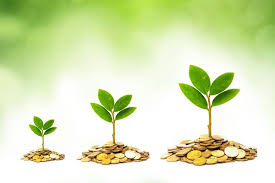Climate change advocates are urging capacity building across various sectors to create a pool of local experts who can verify carbon reduction projects, allowing communities to participate in global carbon markets.
Carbon reduction projects encompass activities that remove existing carbon emissions from the atmosphere or prevent new emissions from being released.
Veronica Jakarasi, Director of the Institute of Sustainability Development Finance, spoke at a recent Climate Change Carbon Markets and Sustainability Indaba where she highlighted the lack of local experts to verify projects, which hinders communities from profiting from their carbon credits.
“We have local projects underway, but finding experts to verify actual carbon reduction is very difficult,” Jakarasi said. “Some of these projects are run by rural women who lack the funds to bring in an expert for validation.”
“We need local experts who can help demonstrate the ‘additionality’ aspect of our projects,” she continued. “Additionality refers to the measurable emission reductions that wouldn’t have occurred without the project. Since we lack local experts, we have to fly them in from other countries. How can local communities afford that? Therefore, we need to invest in developing our own pool of experts to verify our own projects.”
“Capacity building is crucial. The government has committed to investing in this area, specifically to train local experts,” Jakarasi elaborated. “However, we need to go beyond government involvement. Our academic institutions need to step in and train auditors to perform this type of work.”
Nicholas Nyathi, Amalima Loko Food Security Technical Coordinator, echoed Jakarasi’s concerns. He acknowledged that communities are already engaged in projects that could generate carbon credits.
“Under the Amalima Loko program,” Nyathi explained, “we have communities that have made significant progress in this sector. Stakeholders in the climate sector should partner with organizations like ours to ensure communities can fully benefit.”
“While we discuss carbon markets,” he continued, “numerous communities are already taking action on the ground. Amalima Loko operates in five districts of Matabeleland North. In these districts, we work with 618 villages involved in various grazing land management practices, including rotational grazing. They’ve also established protected areas to conserve their land.”
“For the first time in years, women in Tsholotsho and Lupane were able to harvest grass for thatching their homes because they had protected these areas,” Nyathi said. “Similar projects are underway in Hwange, where communities are removing invasive lantana camara while ensuring there’s enough remaining grass to feed their livestock.”
He further highlighted their solar irrigation projects as instrumental in climate action.
“We’ve established five irrigation schemes in these areas, drilling 62 boreholes, 25 of which are solar-powered,” Nyathi said. “If we can assist these communities with the climate-friendly projects they’re already undertaking, they can benefit from carbon credits. While some existing projects weren’t primarily focused on carbon markets, collaboration between organizations and stakeholders can identify communities already doing this work and connect them to the potential benefits.”

